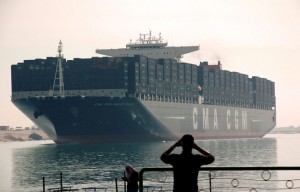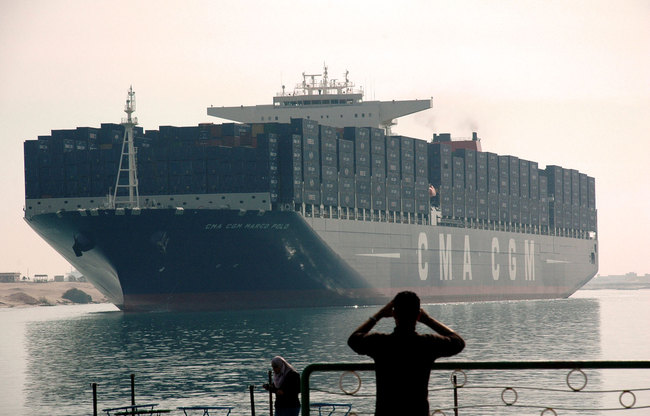
(AFP Photo)
Egypt has offered the World Bank a national programme in order to obtain a loan, said Prime Minister Hesham Qandil yesterday at the Economic Commission inauguration in Suez.
Qandil stated that the Egyptian government will continue to launch development projects in the North Coast, Suez Canal, Toshka and the Al-Wadi Al-Gadid.
“The real development for Egypt is represented in these production projects, especially in the economic area located to the west of the Suez Gulf,” he said.
“The Egyptian government, since taking office, has been working on the Suez Canal Corridor Development Project to transform it from just a waterway to a huge national project,” he added.
Qandil’s cabinet made an agreement with the governor of Suez and the Minister of Agriculture and Land Reclamation Salah Khalil to kickstart projects on fish farms, providing up to 15,000 jobs to youths in the Al-Za’farana area.
The government has additionally announced that the Suez Canal Corridor Project will launch a project west of the Suez Gulf through industrial development companies.
In his speech, Qandil said that lands will be withdrawn from investors who were not serious about the projects, referring to Mohamed Aboul Enein and Naguib Sawiris, despite agreements made with those investors to return the lands.
Qandil also signed an agreement with the Chinese company EG-TEDA yesterday to overhaul the northwest area of the Gulf of Suez by establishing a Chinese investment zone.
The zone will be established with upwards of $1bn in investments and will exist for the purpose of promoting economic development, said Minister of Investment Ossama Saleh.
“An integrated development plan has been outlined for the whole area, offering hundreds of thousands of direct job opportunities and millions of indirect ones,” Qandil said after signing the agreement.
Saleh stated that Egypt’s commercial trade with China reached $7bn in 2012. He went on to say that the creation of the zone, whose success in garnering investment he attributed to President Mohamed Morsi’s recent visit to Beijing, would go far to attract a number of Chinese companies and investors to Egypt.
He added that Egypt’s Investment Ministry would make 14 square kilometres of land available at the beginning of May for local and international companies to spur development for the first stage of the zone’s construction.
Saleh stated: “We hope by the end of the project to develop 90 square kilometres of land, creating upwards of 200 factories which would provide an estimated 700,000 jobs to the region’s residents.” He added that this process would take place in two stages.
“This is the first step in the Egyptian dream of converting the Suez Canal from a mere waterway that reaps $5.5bn per year, to one that brings in $100bn in revenues annually. Today we take the first step towards making that dream a reality,” Qandil added.



